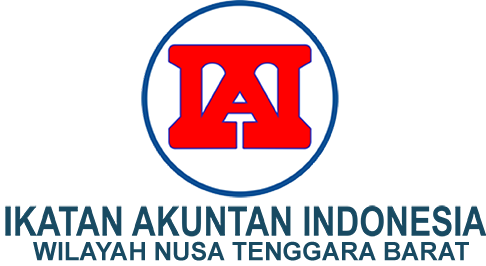CORPORATE GOVERNANCE AND CORRUPTION CONTROVERSIES IN SOUTHEAST ASIA
DOI:
https://doi.org/10.29303/akurasi.v7i1.492Keywords:
Corporate Governance, Corruption, Corporate Controversies, Southeast AsiaAbstract
The series of corporate corruption scandals has raised questions about the effectiveness of corporate governance. The focus of this investigation is on the interplay between ineffective corporate governance and corruption controversies among companies in Southeast Asia. Using archival methods, 515 firm-year observations were conducted in Indonesia, Malaysia, Thailand, and the Philippines between 2017 and 2021. As expected, research findings reveal a strong link between poor corporate governance and companies' involvement in corruption scandals. Furthermore, weak corporate governance diminishes the efficacy of anti-corruption initiatives in Southeast Asia. Consequently, a comprehensive understanding of the nexus between corporate governance and corruption scandals is of paramount significance for an equitable anti-corruption strategy. Urgent action is needed to enhance the monitoring of effective corporate governance implementation, which can contribute to the global fight against corruption.
Downloads
References
ACFE. (2020). Report to the Nations: Asia-Pacific Edition. https://legacy.acfe.com/report-to-the-nations/2020/docs/RTTN-AsiaPac.pdf
Agnese, P., Battaglia, F., Busato, F., & Taddeo, S. (2023). ESG controversies and governance: Evidence from the banking industry. Finance Research Letters, 53. https://doi.org/10.1016/j.frl.2022.103397
Asian Development Bank. (2021). ASEAN Corporate Governance Scorecard Country Reports and Assessments 2019. https://doi.org/10.22617/TCS210345
Binhadab, N., Breen, M., & Gillanders, R. (2021). Press freedom and corruption in business-state interactions. Economic Systems. https://doi.org/https://doi.org/10.1016/j.ecosys.2021.100922
Boateng, A., Wang, Y., Ntim, C., & Glaister, K. W. (2021). National culture, corporate governance and corruption: A cross-country analysis. International Journal of Finance and Economics, 26(3), 3852–3874. https://doi.org/10.1002/ijfe.1991
CRMS. (2022). Implementasi Tata Kelola Perusahaan di Indonesia.
dela Rama, M. (2012). Corporate Governance and Corruption: Ethical Dilemmas of Asian Business Groups. Journal of Business Ethics, 109(4), 501–519. https://doi.org/10.1007/s10551-011-1142-0
Dorfeitner, G., Kreuzer, C., & Sparrer, C. (2020). ESG controversies and controversial ESG: about silent saints and small sinners. Journal of Asset Management, 21, 393–412. https://doi.org/https://doi.org/10.1057/s41260-020-00178-x
Gujarati, D. N., & Porter, D. C. (2009). BASIC ECONOMETRICS 5th ed. McGrawHill/Irwin.
Hirsch, R., & Watson, S. (2010). The Link between Corporate Governance and Corruption in New Zealand. New Zealand Universities Law Review, 24(1), 42.
Indonesia, G. (2019). CORPORATE GOVERNANCE ASSESSMENT. https://www.garuda-indonesia.com/jp/en/investor-relations/corporate-governance/corporate-governance-assessment/index
Na, K., Kang, Y.-H., & Kim, Y. S. (2018). The Effect of Corporate Governance on the Corruption of Firms in BRICs (Brazil, Russia, India & China). Social Sciences, 7(6), 85. https://doi.org/10.3390/socsci7060085
Nguyen, T. (2021). Freedom of the press and corporate misconduct. J Bus Fin Acc, 48, 1668–1710. https://doi.org/10.1111/jbfa.12532
Passas, I., Ragazou, K., Zafeiriou, E., Garefalakis, A., & Zopounidis, C. (2022). ESG Controversies: A Quantitative and Qualitative Analysis for the Sociopolitical Determinants in EU Firms. Sustainability, 14, 12879. https://doi.org/10.3390/su141912879
Pratiwi, R. (2014). Implementasi GCG Harus Libatkan Semua Stakeholders. https://swa.co.id/swa/capital-market/gcg/implementasi-gcg-harus-libatkan-semua-stakeholders
Ramdani, D., & Witteloostuijn, A. van. (2012). The Shareholder — Manager Relationship and Its Impact on the Likelihood of Firm Bribery Author. Journal of Business Ethics, 108(4), 495–507. https://doi.org/10.1007/sl0551-011-1105-5
Razook, C. (2015). Corporate governance in ASEAN. https://www.aicd.com.au/corporate-governance-sectors/global/challenges/corporate-governance-in-asean.html
Reuters, T. (2022). ENVIRONMENTAL, SOCIAL AND GOVERNANCE SCORES FROM REFINITIV. https://www.refinitiv.com/content/dam/marketing/en_us/documents/methodology/refinitiv-esg-scores-methodology.pdf
Saptono, P. B., & Purwanto, D. (2022). Analisis ketidakefektifan good corporate governance dalam pencegahan korupsi di BUMN. Integritas: Jurnal Antikorupsi, 8(1), 77–94.
Shakil, M. H., Tasnia, M., & Mostafiz, M. I. (2021). Board gender diversity and environmental, social and governance performance of US banks: moderating role of environmental, social and corporate governance controversies. International Journal of Bank Marketing, 39(4), 661–677.
Sööt, M.-L., Johannsen, L., Pedersen, K. H., Vadi, M., & Reino, A. (2016). Private-to-private corruption: Taking business managers’ risk assessment seriously when choosing anti-corruption measures. https://pure.au.dk/ws/files/99032535/Integrity_Forum_16_Soo
Transparency International. (2021). Global Corruption Barometer Pacific 2021. https://www.transparency.org/en/gcb/pacific/pacific-2021
UNDOC. (2018). ASEAN jurisdictions must hold businesses accountable for corruption offences. https://www.unodc.org/roseap/en/2018/08/asean-corruption/story.html
Wu, X. (2005). Corporate governance and corruption: A cross-country analysis. Governance, 18(2), 151–170. https://doi.org/10.1111/j.1468-0491.2005.00271.x
Zattoni, A., Leventis, S., Van Ees, H., & De Masi, S. (2023). Board diversity’s antecedents and consequences: A review and research agenda. Leadership Quarterly, 34(1), 101659. https://doi.org/10.1016/j.leaqua.2022.101659
Downloads
Published
How to Cite
Issue
Section
License
Copyright (c) 2024 Dewi Mustika Ratu

This work is licensed under a Creative Commons Attribution-ShareAlike 4.0 International License.
Authors who publish in Akurasi: Jurnal Studi Akuntansi dan Keuangan agree to the following terms:
- Authors retain the copyright of their articles.
- Authors grant Akurasi: Jurnal Studi Akuntansi dan Keuangan the right of first publication.
- Articles are licensed under the Creative Commons Attribution-ShareAlike 4.0 International License (CC BY-SA 4.0).
- This license allows anyone to copy, distribute, display, and adapt the articles for any purpose, including commercial use, as long as proper credit is given to the author(s) and the source, and derivative works are distributed under the same license.
- All published articles are open access and may be used for educational, research, and scientific purposes.







